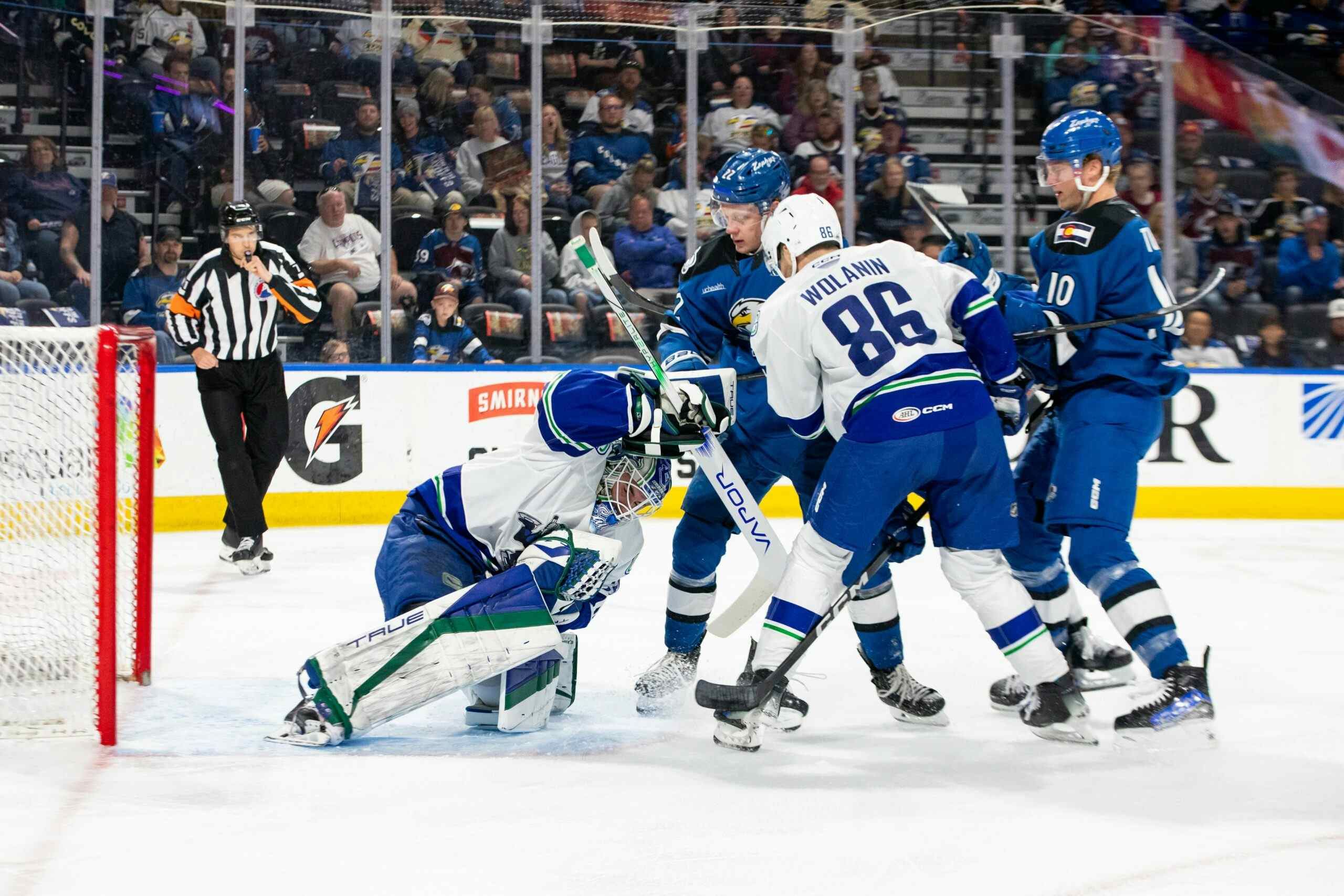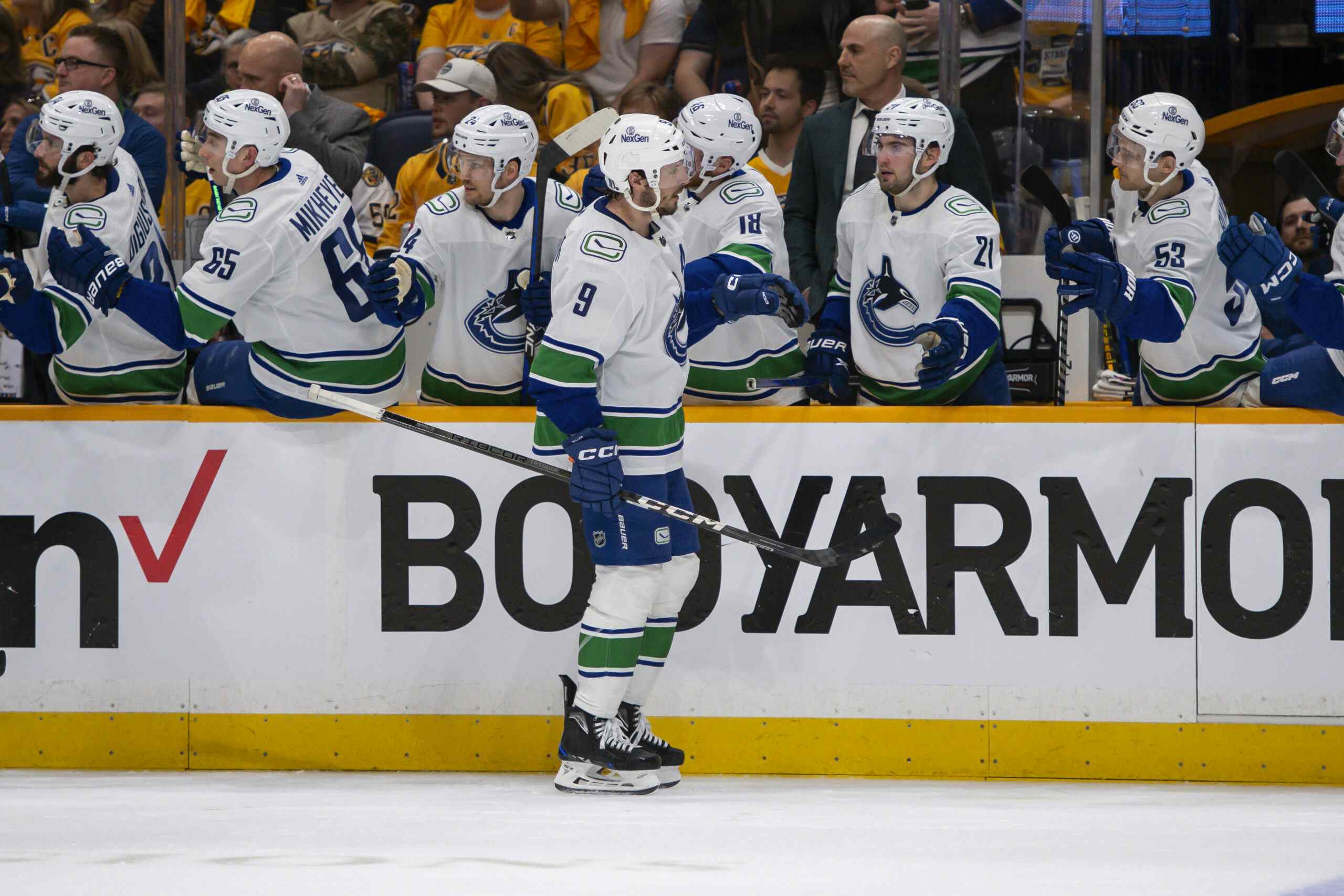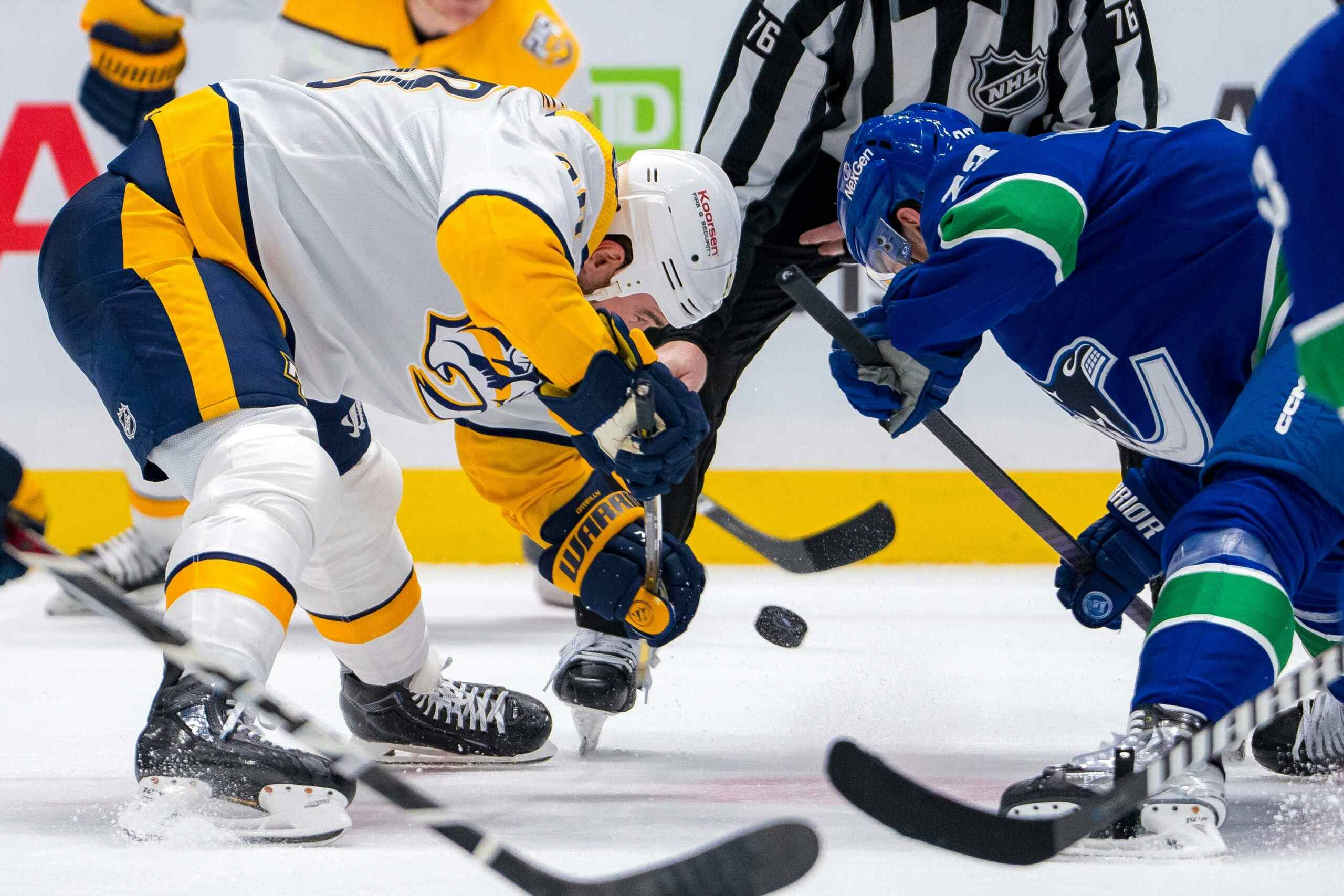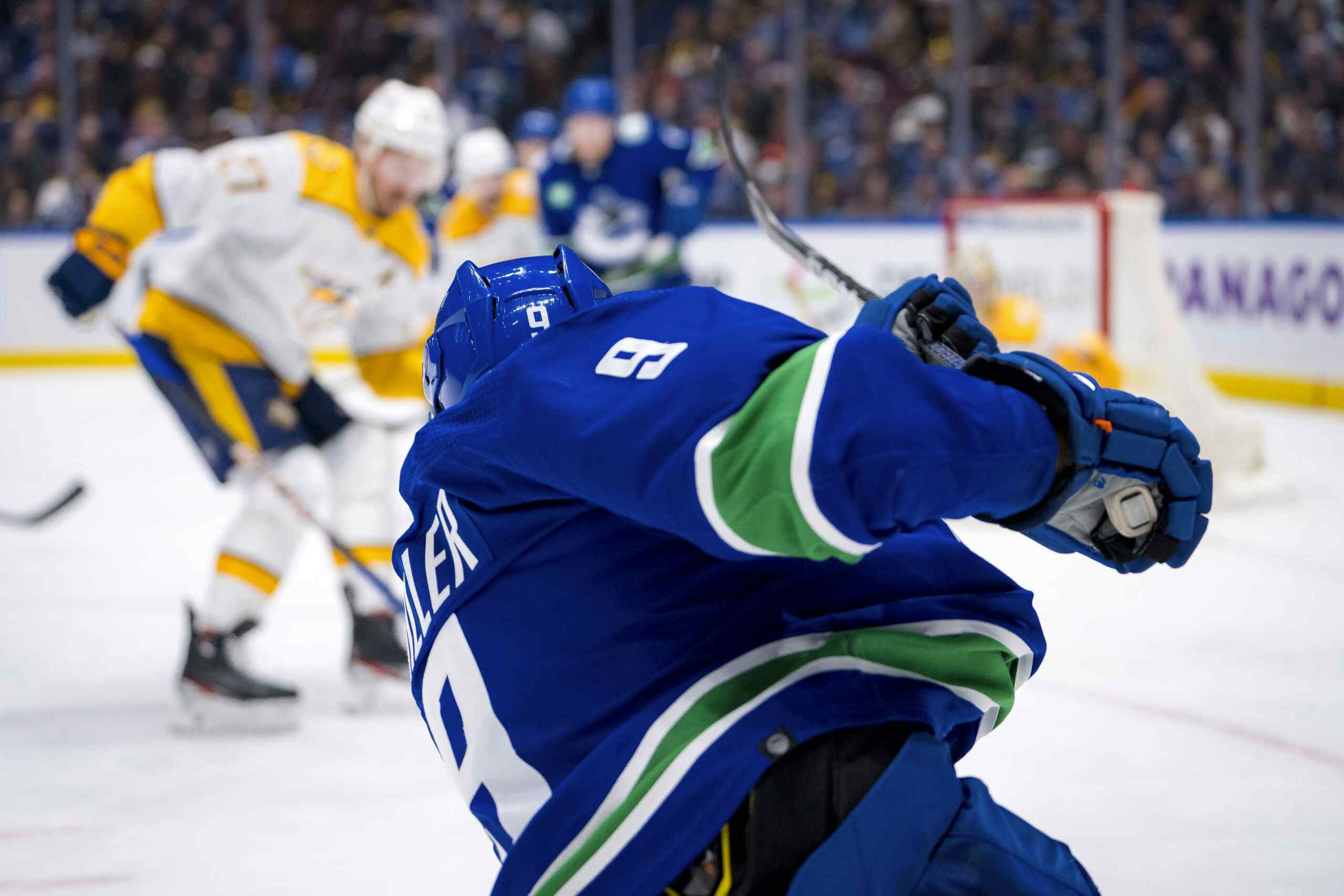Bold Moves: The David Booth Purchase
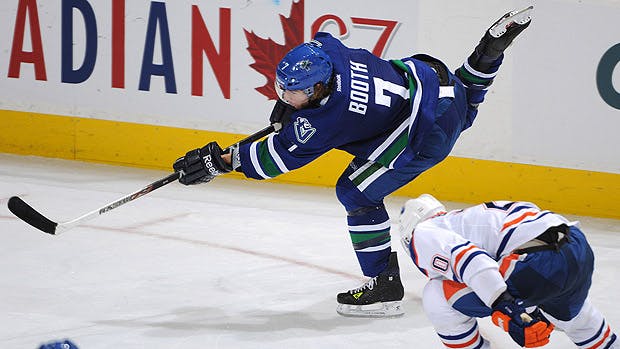
Yesterday we kicked off the "Bold Moves" series with our attempt at a hindsight-free retrospective on the Keith Ballard deal. We’ll continue in a similar vein with that series today, as we take a look at the David Booth purchase.
Read past the jump.
The Cost

You’ll notice that in the title of this post we referred to the Booth deal as a "purchase" rather than a "trade." That’s because purcahse is more accurate.
In October of 2011, Mike Gillis executed a transaction where he in effect bought David Booth, Steven Reinprecht’s contract (which Scott Reynolds described at the time as a "$1.99M liability"), and Vancouver’s own third round pick – which the Canucks had originally sent to Florida in a deadline deal for Chris Higgins – from Dale Tallon and the Florida Panthers. To complete the deal Mike Gillis sent the Panthers two injury prone veteran players coming off of surgery in Mikael Samuelsson and Marco Sturm.
Per Reynolds again "once you factor in the other salaries and the value of the pick, David Booth was sold for about $1M" in addition to committing to pay his contract for the subsequent three seasons. Basically Mike Gillis gave up little in the way of hockey value in order to acquire a 26 year old forward and former thirty goal scorer coming off of an unproductive season.
The Bet
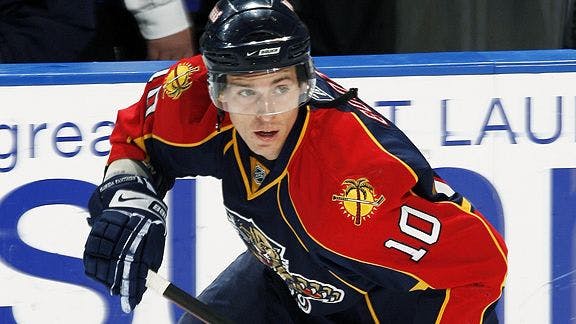
The Canucks had been after David Booth for a while before they finally acquired him. Mike Gillis, for example, told the media in his post-2011 trade deadline press conference that the team’s trade for Chris Higgins had come out of a longer discussion about a different player. Think that player might have been David Booth?
David Booth was 26 at the time of the trade, and he was coming off his worst season as a professional (in which he’d nonetheless managed 23 goals). His ice-time was dropping and following a season in which he was a -31 for an awful Panthers team, he was a -6 through his first six games of that season for merely a crummy Panthers team. The Panthers had a glut of new, mostly overpaid depth forwards whom Tallon had signed that summer, and obviously he decided that Booth wasn’t part of their future.
Tallon was eager to rid himself of David Booth’s contract, while Mike Gillis had an opportunity to buy low on a player he’d previously pursued. He had good reason to ignore Booth’s ugly individual goal differential – Booth was crushed by the percentages that season – and little reason to suspect, as we do today, that Booth was an on-ice shooting percentage outlier(*).
(*) At the time David Booth’s on-ice shooting% was middle of the pack over a four year sample (an elevated 8.2%). It’s not as if there were warning signs that were ignored.
Really this purchase was a no brainer when you consider Booth’s track record of dominating the puck and chipping in twenty-plus goals per season like clockwork (so long as he’s healthy). His ability to drive play from the wing(*) and the physicial element of his game promised to provide the Canucks with something which they were lacking at the time, and which they’ve seemed so eager to address in the time since.
(*) Booth’s WOWY’s from his time in Florida make plain who was driving the bus possession-wise between Booth and every single one of his most regular line-mates. What they don’t show is how critical Nathan Horton was for driving Booth’s shooting percentage…
The risk involved in the transaction concerned David Booth’s contract and term, and his concussion history. We’ll get into that more in a bit, but I think it’s pretty clear that acquiring Booth was something of a tap in bet for Mike Gillis at the time. Even if you’re the type who thinks that David Booth should be a buyout candidate this summer, this trade still doesn’t look that bad for Vancouver’s General Manager. After all, it’s not like it cost the Canucks anything besides money.
Context
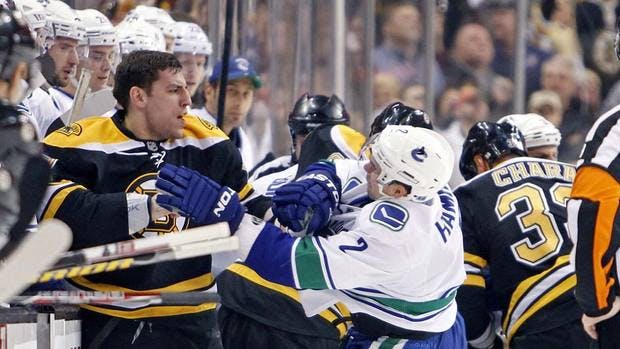
I’m not sure that I’ve ever heard this addressed specifically, but it seems to me that Vancouver’s philosophy changed somehow after the Boston Bruins series. In Mike Gillis’ first few years as General Manager, he didn’t really go out of his way to acquire size or toughness (Darcy Hordichuk aside), preferring instead to win with speed and scoring. For every Raffi Torres signing, or trade for Andrew Alberts – there were two moves designed to make the team more skilled.
Gillis drafted guys like Anton Rodin, Cody Hodgson and Jordan Schroeder in his first two drafts as General Manager, and acquired the likes of Christian Ehrhoff (another straight purchase) and Mikael Samuelsson. Sure Mike Gillis also brought in some physical welterweight type players like Dan Hamhuis, Keith Ballard and Chris HIggins, but all of those guys could skate too. Before the 2011-12 season, Gillis’ Canucks teams seemed to prioritize offense and scoring, they made a habit of turning the other cheek between the whistles and letting their power-play be the club’s enforcer.
Since losing in the 2011 Stanley Cup Finals, the Canucks have drafted almost exlclusively big forwards at the draft (2011: Nicklas Jensen, Alexandre Grenier, Joseph LaBate, Ludwig Blomstrand, 2012: Brendan Gaunce, Alexandre Mallet). Meanwhile they dealt Cody Hodgson for a mammoth with potential in Zack Kassian, they purchased David Booth and they spent an entire summer playing footsie with Shane Doan.
It’s possible that David Booth was the first hint at a bit of a new direction for this Canucks team. Gone from the lineup since 2011: Christian Ehrhoff, Mikael Samuelsson, Cody Hodgson and Sami Salo. Meanwhile Kevin Bieksa was retained and Jason Garrison, David Booth and Zack Kassian were brought in. I think it’s clear which foursome would make for a better 4on3 power-play unit, and I also think it’s obvious which foursome would be tougher to do battle with over the course of a seven game playoff series…
I can’t know for sure, but I’d suggest to you that the Canucks purchased David Booth because of his ability to drive play at evens, and provide a physical element in the top-six. That they were able to do so when his value was so low was a bonus.
Outcome
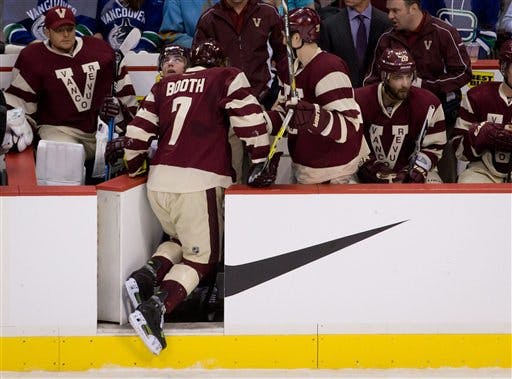
Unfortunately for the Canucks, as low as Booth’s value was in October of 2011, it’s even lower now.
The trade doesn’t even look silly from a Panthers perspective a year and a half out. Consider that Dale Tallon got 90 games and 33 points out of Mikael Samuelsson and Marco Sturm last season. The Canucks? They’ve only recieved 68 games and 32 points out of Booth’s first two seasons in Vancouver.
So far gambling on David Booth hasn’t paid off for the Canucks, but I’m still unconvinced that the Michigan born forward is overpaid by all that much (maybe a million dollars – when you consider that at worst he’s a high-end version of Dustin Penner or Daniel Winnik). The real reason this deal has failed for the Canucks, however, has little to do with shooting percentage and less to do with Booth’s contract. It has everything to do with Booth’s inability to stay healthy.
There were some durability redflags with David Booth, seeing as he suffered a severe concussion during the 2009-10 season. But that hasn’t been his issue in Vancouver, and I find it difficult to ascribe his health issues as a Canuck to anything besides rotten luck.
Consider that Booth suffered a knee injury on a Kevin Porter cheapshot just as he was finding his stride with the Canucks in 2011-12. He then pulled his groin during fitness training a few days after the lockout ended this past January. He returned to the lineup, but just twelve games into his season he suffered a high-ankle sprain that ended his season. By the way, the ankle sprain is a pretty rare injury in hockey.
Those are three different injuries, all of a "freak" variety. It’s not like Booth is "damaged goods" and has a degenerative hip ailment or something. But those are the breaks that often make or break a bold move. It’s still a bit too early to call David Booth’s Canucks tenure a failure – he’s still a useful, complimentary top-six forward when healthy. But two seasons out, and it’s clear that the Canucks haven’t recouped what they were hoping to on the Booth purchase, even though the cost was low and the initial bet was a sound one.
Bold Moves Series
Recent articles from Thomas Drance

